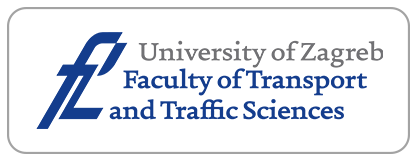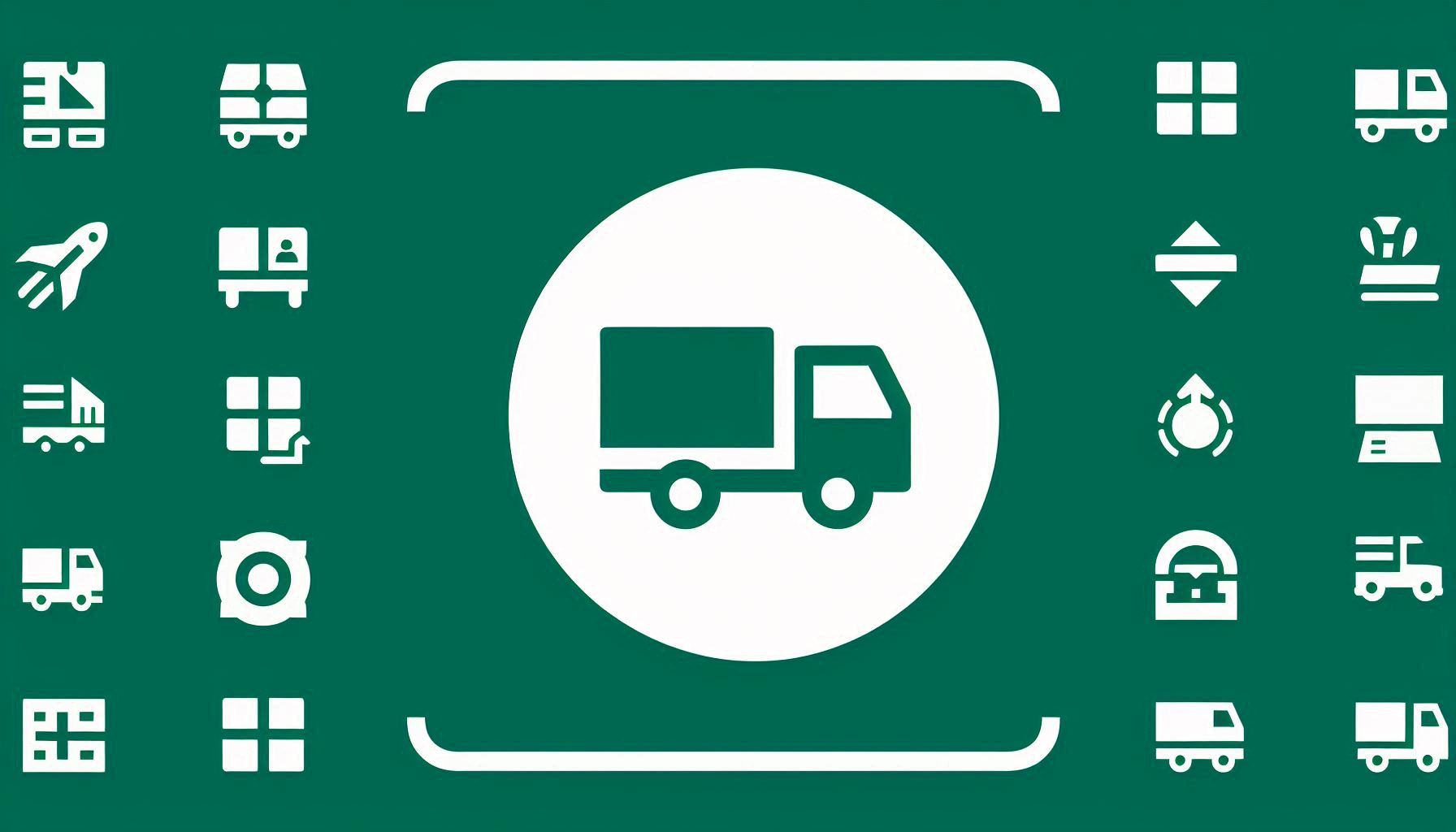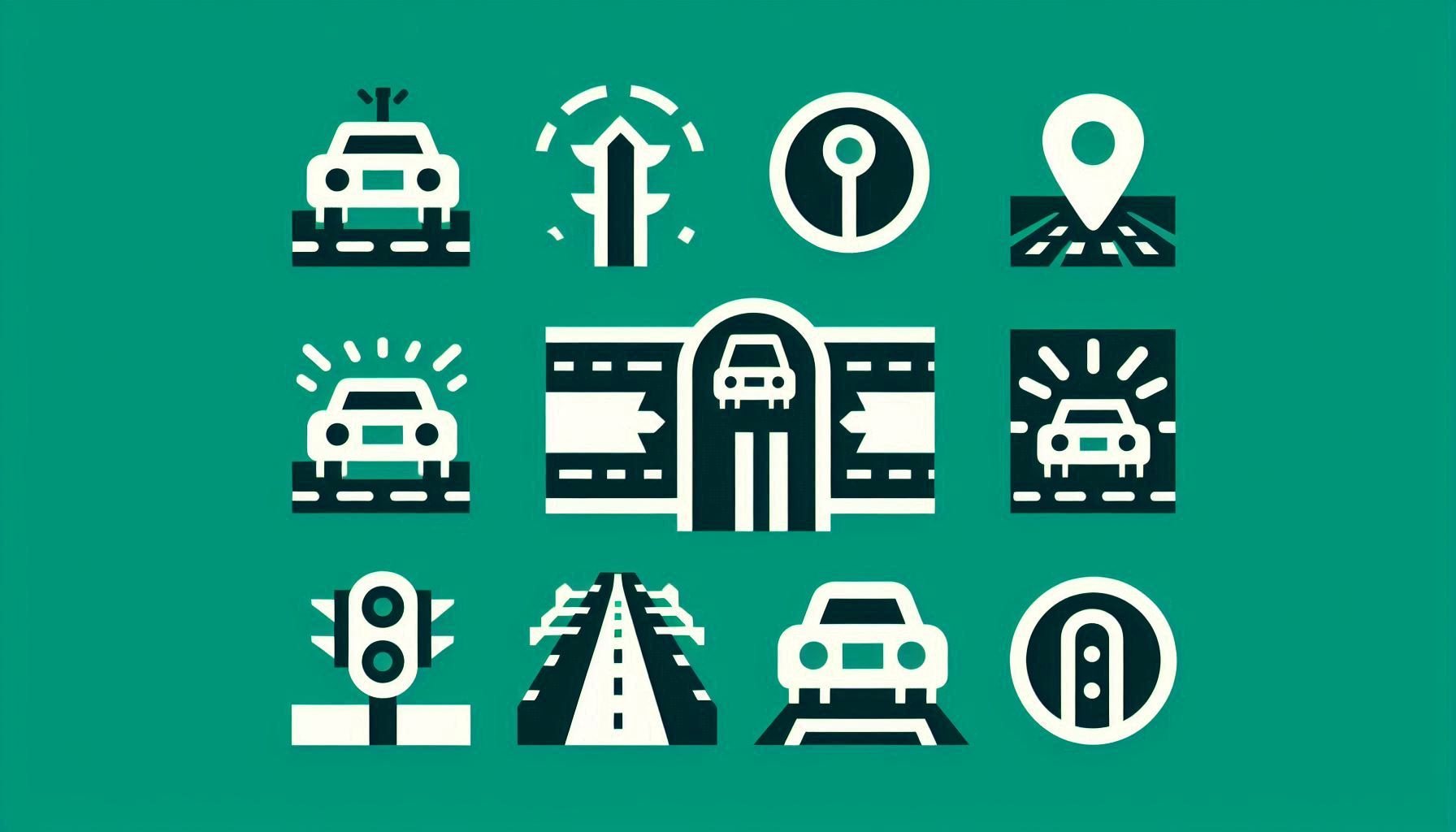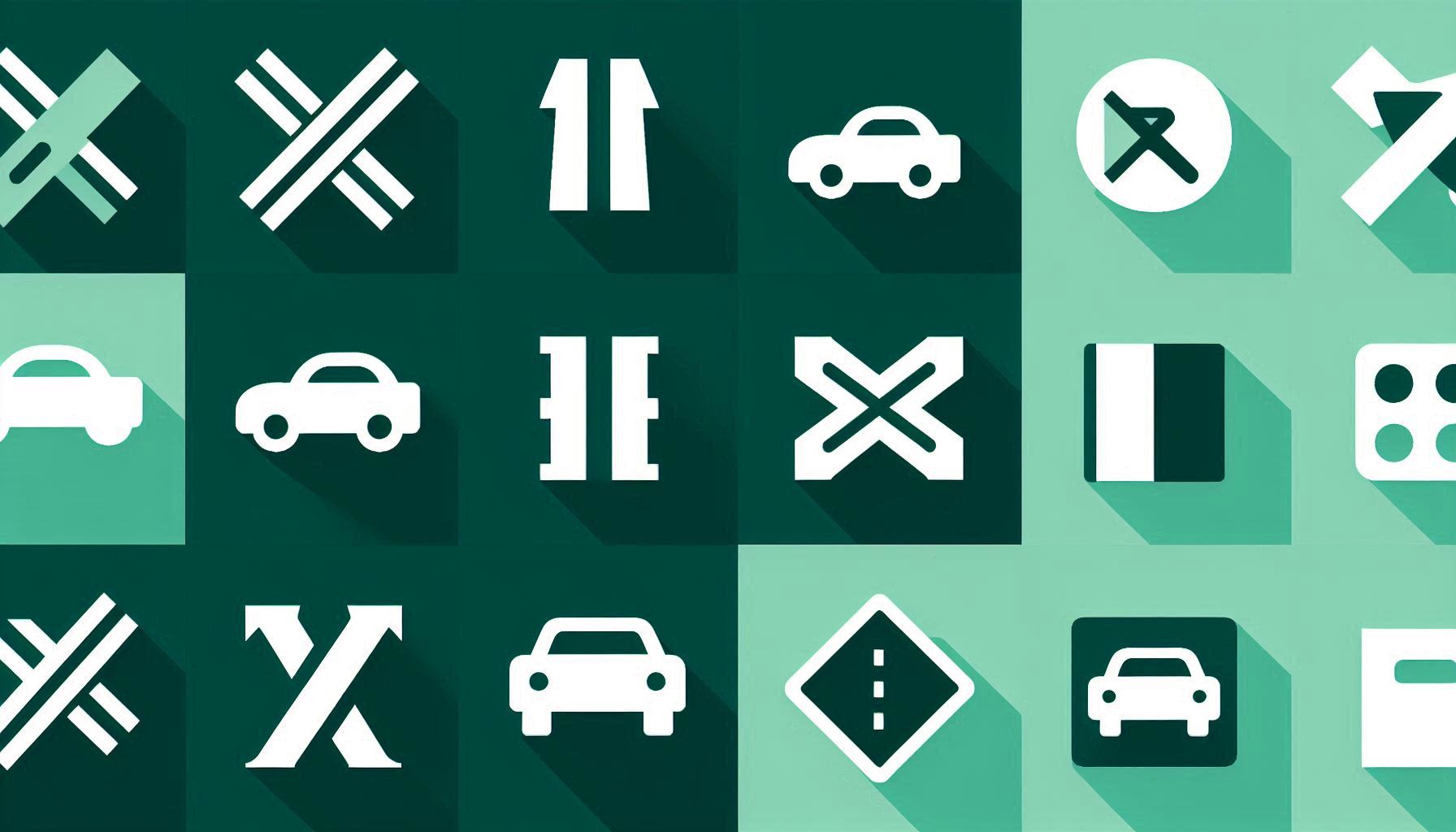Study on the Safety Management of Connected and Autonomous Vehicle Test Roads Based on the Evaluation of Traffic Safety Facilities
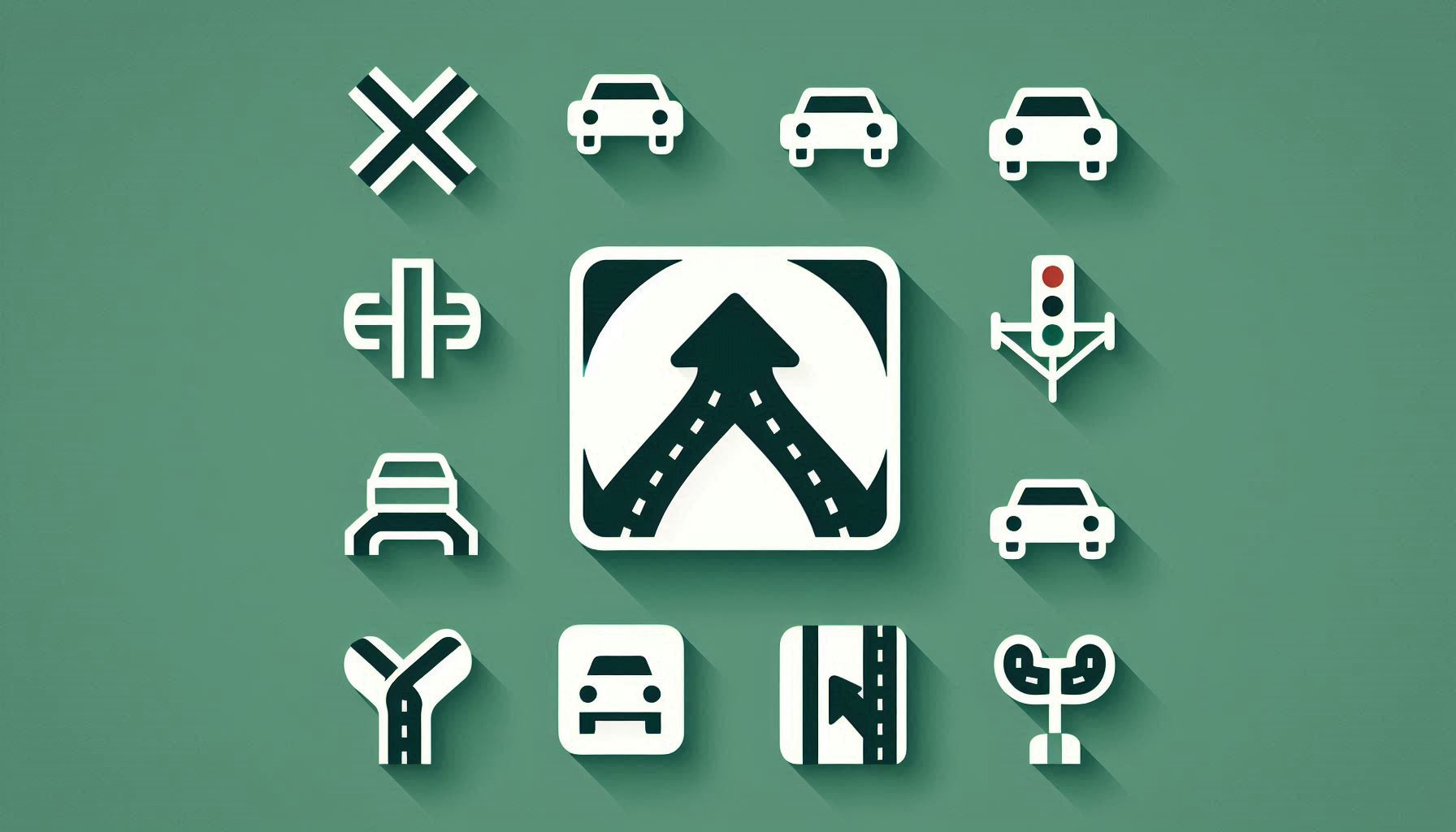
Downloads
More and more connected and autonomous vehicle (CAV) open test roads reconstructed on the basis of traditional roads have appeared in China. However, the management policies vary, which makes the traffic environment complicated. This paper takes CAV test road safety management as the research aim and investigates the open test condition through the evaluation of the traffic safety facilities. Indicators were rigorously screened, then the game theory model was used to determine the combination weight of the indicators, and the set pair analysis was applied to solve the uncertain problems. A case study for the CAV test road network of a city in central China was implemented and the results show, regarding the traffic safety facilities’ condition, among the 20 sections of the city’s CAV test road network, 15% of which are at an excellent level, 75% of which are at a good level and 10% of which are at a moderate level; road signs, guardrail facilities, isolation facilities and road features are the main limiting factors affecting the level of traffic safety facilities. Based on the results, recommendations have been made for the transport management authorities in the aspects of safety management policy-making and facilities maintenance.
Downloads
Hou QZ, Huo XY, Leng JQ. A correlated random parameters Tobit model to analyze the safety effects and temporal instability of factors affecting crash rates. Accident Analysis & Prevention. 2020;134:105326. DOI: 10.1016/j.aap.2019.105326.
Wang X, et al. Incorporating accident liability into crash risk analysis: A multidimensional risk source approach. Accident Analysis & Prevention. 2021;153:106035. DOI: 10.1016/j.aap.2021.106035.
Lord D, Mannering F. The statistical analysis of crash-frequency data: A review and assessment of methodological alternatives. Transportation Research Part A: Policy and Practice. 2010;44(5):291-305. DOI: 10.1016/j.tra.2010.02.001.
Wang YH, Zhang H, Zhang K, Zhang C. Research on the evaluation method of road traffic safety facilities effect based on interdepartmental information. Highway. 2011;1(10):145-150. DOI: 10.7666/d.y1962077.
Koscianski A, Candido Bracarense Costa J. Combining analytical hierarchical analysis with ISO/IEC 9126 for a complete quality evaluation framework. The 4th IEEE International Symposium and Forum on Software Engineering Standards, 17-21 May 1999, Curitiba, Brazil. 1999. p. 218-227. DOI: 10.1109/SESS.1999.766597.
Ossadnik W, Lange O. AHP-based evaluation of AHP-software. European Journal of Operational Research. 1999;3(118):578-588. DOI: 10.1016/S0377-2217(98)00321-X.
Karlsson J, Wohlin C, Regnell B. An evaluation of methods for prioritizing software requirements. Information and Software Technology. 1998;39(14):939-947. DOI: 10.1016/S0950-5849(97)00053-0.
Chao L, Qing L. Fuzzy theory and AHP based manufacturing execution systems (MES) vendor service quality evaluation method study. The IEEE International Conference on Service Operations, Logistics and Informatics, 21-23 June 2006, Shanghai, China. 2006. p. 764-769. DOI: 10.1109/SOLI.2006.329086.
Zhou J, et al. Risk assessment of operation safety in freeway tunnels: An evaluation approach using multiple safety indices. Journal of Transportation Safety & Security. 2014;6(2):93-116. DOI: 10.1080/19439962.2013.817494.
Wang WQ, Fang SE, Sun DC. Multi-layer fuzzy comprehensive evaluation of road trafficsafety management facilities based on gray relational degree. Journal of Wuhan University of Technology (Transportation Science and Engineering Edition). 2010;34(4):652-656. DOI: 10.3963/j.issn.1006-2823.2010.04.004.
Wang JJ, Liu, YC, Wu YS. Research on evaluation index and evaluation method of expressway traffic safety facilities system. Transportation System Engineering and Information. 2007;7(4):66-70. DOI: 10.3969/j.issn.1009-6744.2007.04.011.
Wang KY, Xu DQ. Research on reliability evaluation of highway safety protection facilities. Journal of Railway Science and Engineering. 2016;13(1):196-200. DOI: 10.3969/j.issn.1672-7029.2016.01.030.
Wu Y, Lu J, Wan QZ, Hong TQ. Evaluation of highway traffic safety facilities based on set pair analysis. Applied Mechanics and Materials. 2015;730(3823):73-76. https://www.scientific.net/AMM.730.73.
Zhou GZ, Jian XC, Zhu MM. Expressway traffic safety evaluation based on improved analytic hierarchy process. Highway Traffic Technology. 2015;000(3):120-123. DOI: 10.13607/j.cnki.gljt.2015.03.027.
Wang Y, et al. Research on evaluation method of highway traffic safety facilities. Highway. 2022;67(4):331-339. https://www.nstl.gov.cn/paper_detail.html?id=9a2994b494b434202f8d88b15dbdce25.
She DC. Systematic evaluation of urban expressway traffic safety facilities. Master thesis. Nanjing Forestry University; 2017.
Wu Y, Lu J, Guo YY. Evaluation of expressway traffic safety facilities based on set pair analysis. Journal of Wuhan University of Technology. 2014;36(11):71-76. DOI: 10.3963/j.issn.1671-4431.2014.11.014.
Tu SW, Zhao ZH, Deng MX, Wang B. Overall risk assessment of urban utility tunnel operation and maintenance based on combined weight-regret theory. Safety and Environmental Engineering. 2020;27(6):160-167. https://www.nstl.gov.cn/paper_detail.html?id=d11bfd773e9af71902e99a546121fcbf.
Gan R, et al. Matter-element extension model based on comprehensive weight of game theory in groundwater quality evaluation. Hydropower Energy Science. 2015;33(1):39-42. DOI: CNKI:SUN:SDNY.0.2015-01-010.
Jiang YL, Xu CF, Yao Y, Zhao KQ. Systems information of set pair analysis and its applications. The Third International Conference on Machine Learning and Cybernetics. 26-29 August 2004, Shanghai, China. 2004. p. 1717-1722. DOI: 10.1109/ICMLC.2004.1382052.
Yan YF, et al. Evaluation model of urban public transportation system based on set pair analysis. Journal of Chongqing Jiaotong University (Natural Science Edition). 2009;28(3):579-583. DOI: 10.3969/j.issn.1674-0696.2009.03.26.
Wang WS, Jin JL, Li YQ. Research on comprehensive evaluation of natural disaster risk based on set pair analysis. Journal of Sichuan University (Engineering Science Edition). 2009;41(6):6-12. DOI: CNKI:SUN:SCLH.0.2009-06-003.
Ling HD, Jiang HY. Research on rail transit line scheme in Lagos area based on set pair analysis. Journal of Railway Engineering. 2009;26(4):82-85+99. DOI: 10.3969/j.issn.1006-2106.2009.04.019.
Ge ML, Sun L, Pan YY, Li YF. Design and implementation of freeway infrastructure safety and emergency management system. Social and Behavioral Sciences. 2013;96(1):728-740. DOI: 10.1016/j.sbspro.2013.08.084.
Guo YY, Liu P, Wu Y, Yu H. Systematic evaluation of highway traffic safety facilities based on attribute recognition. Journal of Southeast University (Natural Science Edition). 2013;43(6):1305-1311. DOI: 10.3969/j.issn.1001-0505.2013.06.032.
Mihalj T, et al. Road infrastructure challenges faced by automated driving: A review. Applied Sciences. 2022;12(7):3477. DOI: 10.3390/app12073477.
Babić D, et al. Impact of road marking retro reflectivity on machine vision in dry conditions: On-road test. Sensors. 2022;22(4):1303. DOI: 10.3390/s22041303.
Guerrieri M. Smart roads geometric design criteria and capacity estimation based on AV and CAV emerging technologies. A case study in the Trans-European Transport Network. International Journal of Intelligent Transportation Systems Research. 2021;19:429-440. DOI: 10.1007/s13177-021-00255-4.
Tang ZY, et al. Cooperative connected smart road infrastructure and autonomous vehicles for safe driving. 2021 IEEE 29th International Conference on Network Protocols (ICNP), 01-05 Nov. 2021, Dallas, TX, USA. 2021. p. 1-6. DOI: 10.1109/ICNP52444.2021.9651941.
Copyright (c) 2023 Yijun ZHAO, Qian WEN, Yongjun PAN, Feigang TAN

This work is licensed under a Creative Commons Attribution-NonCommercial 4.0 International License.





